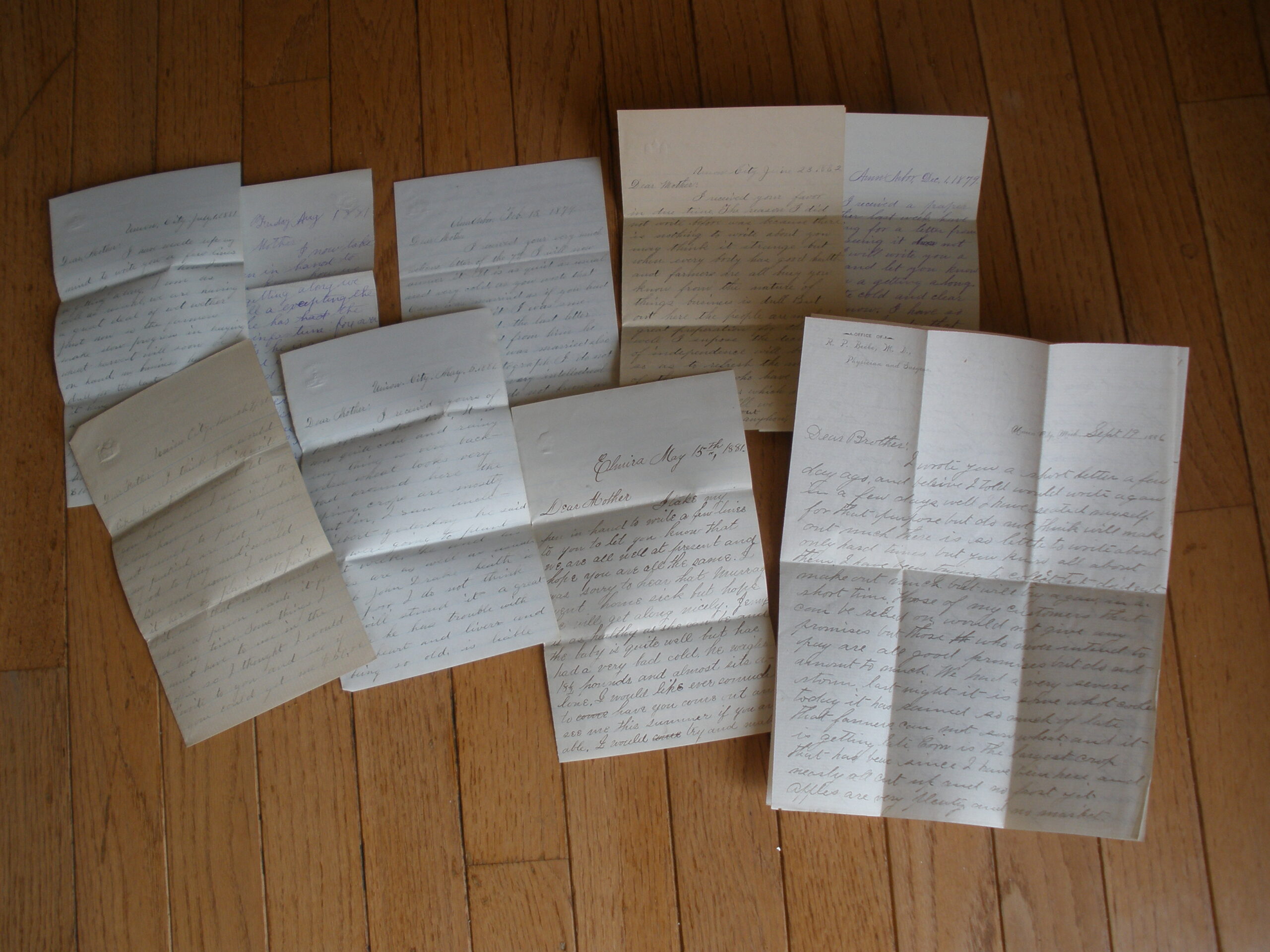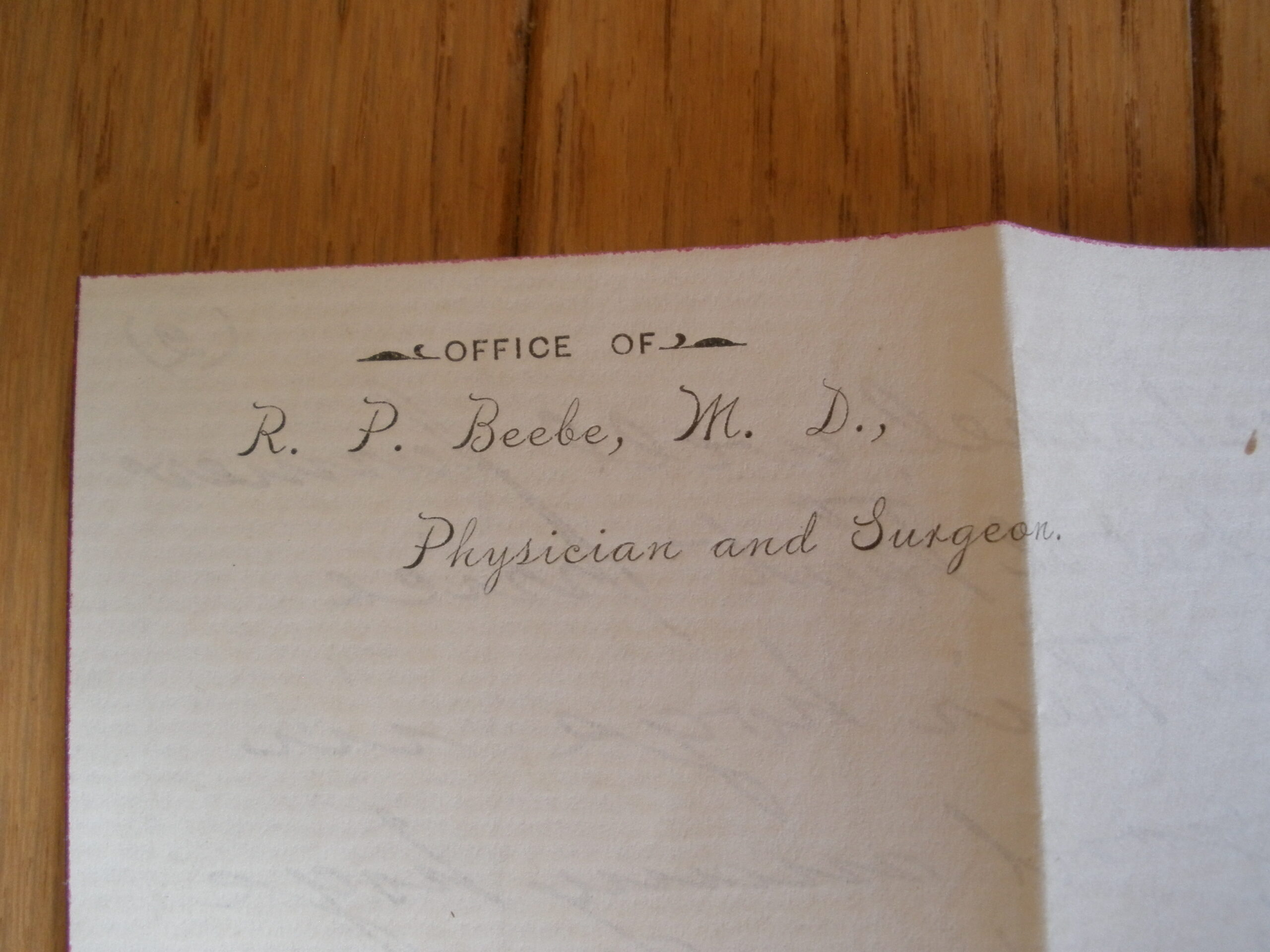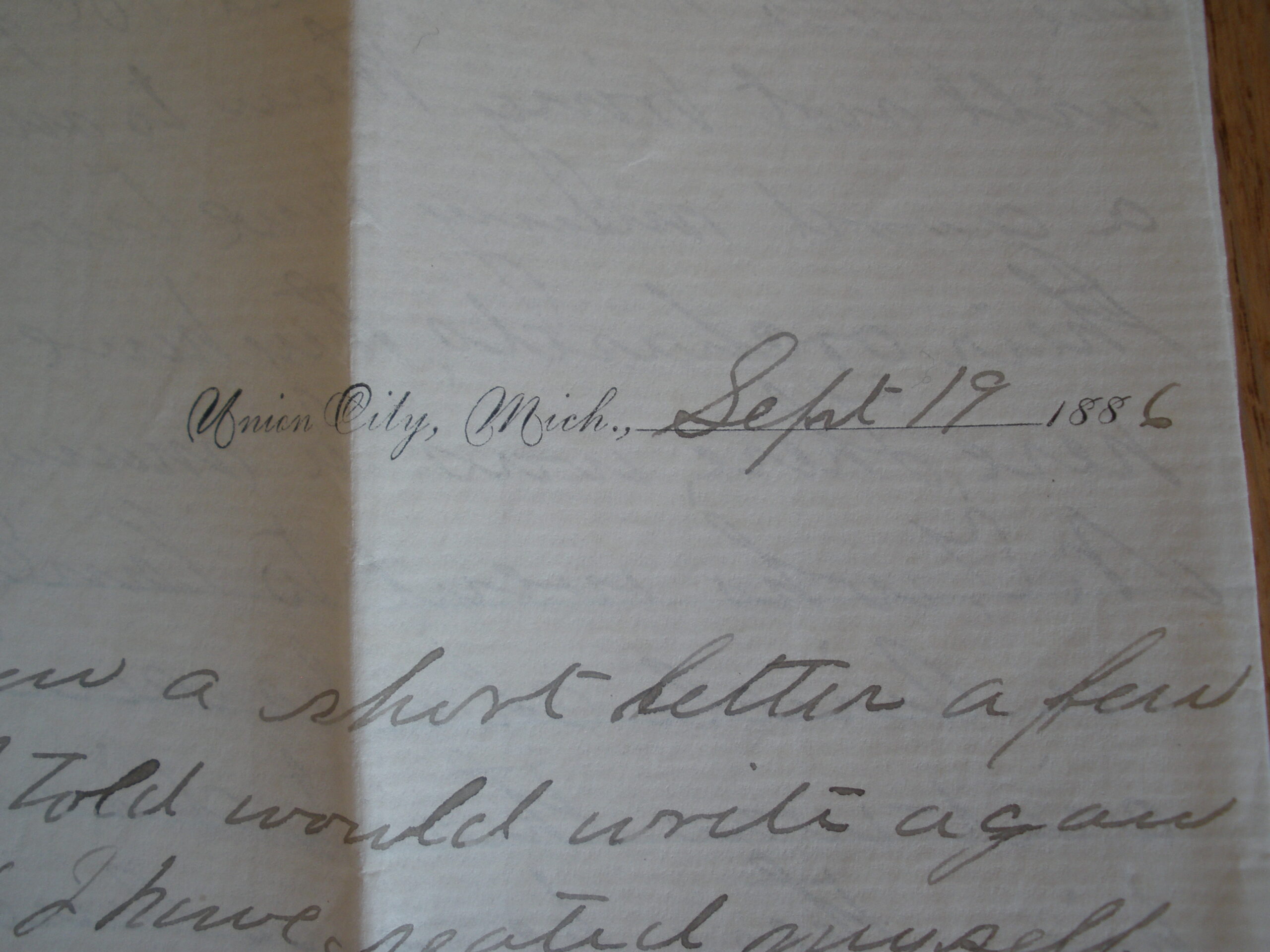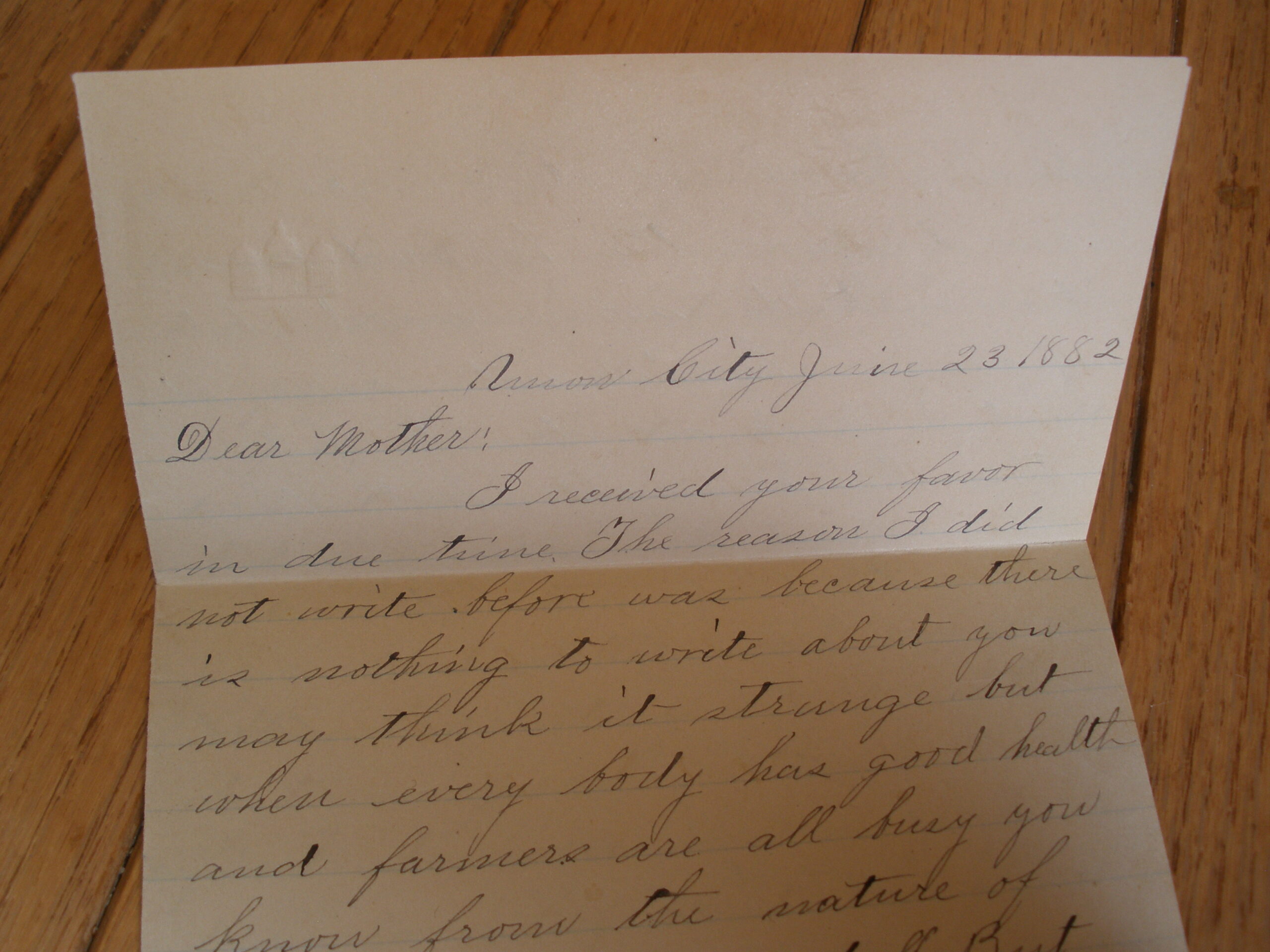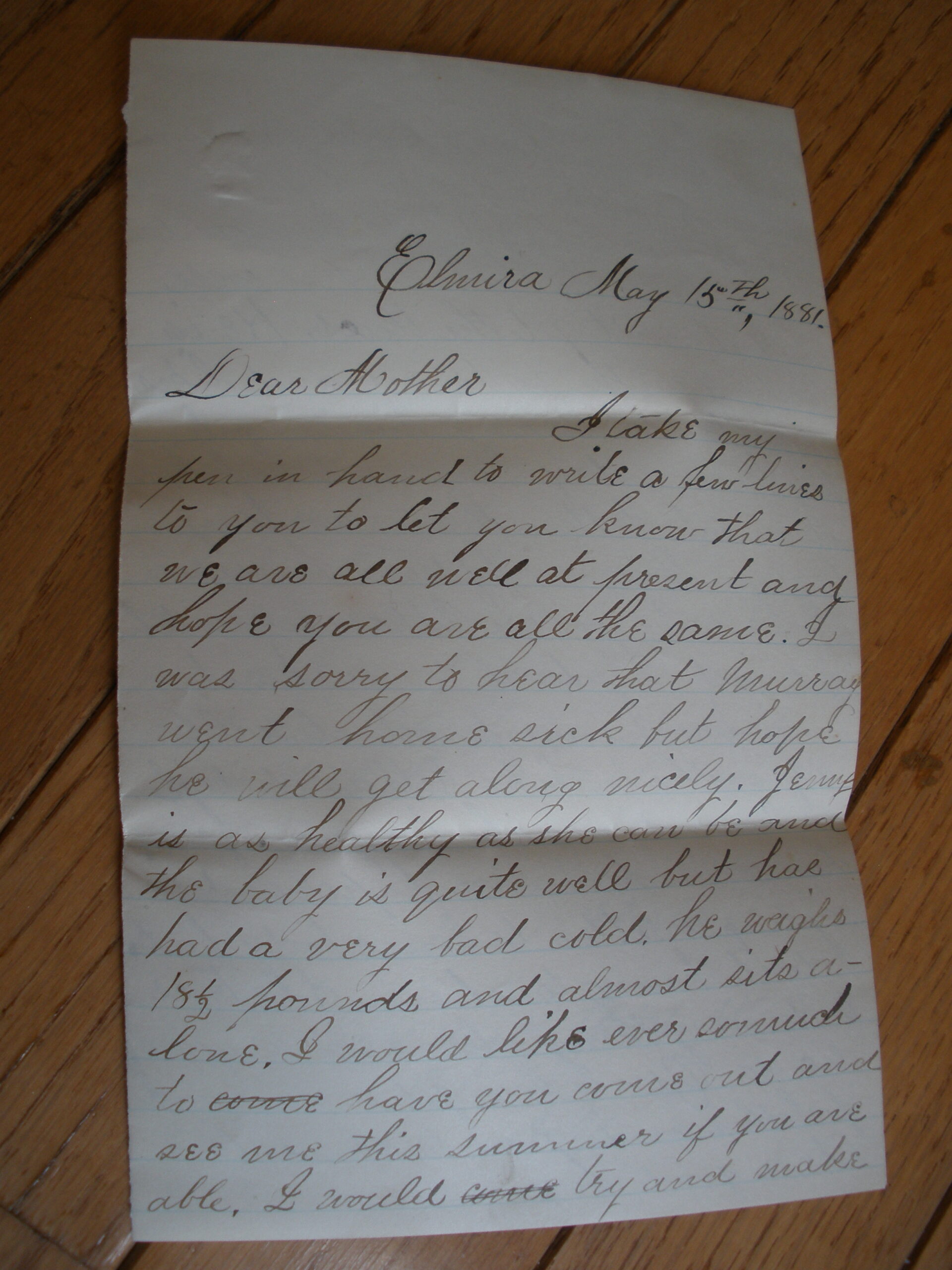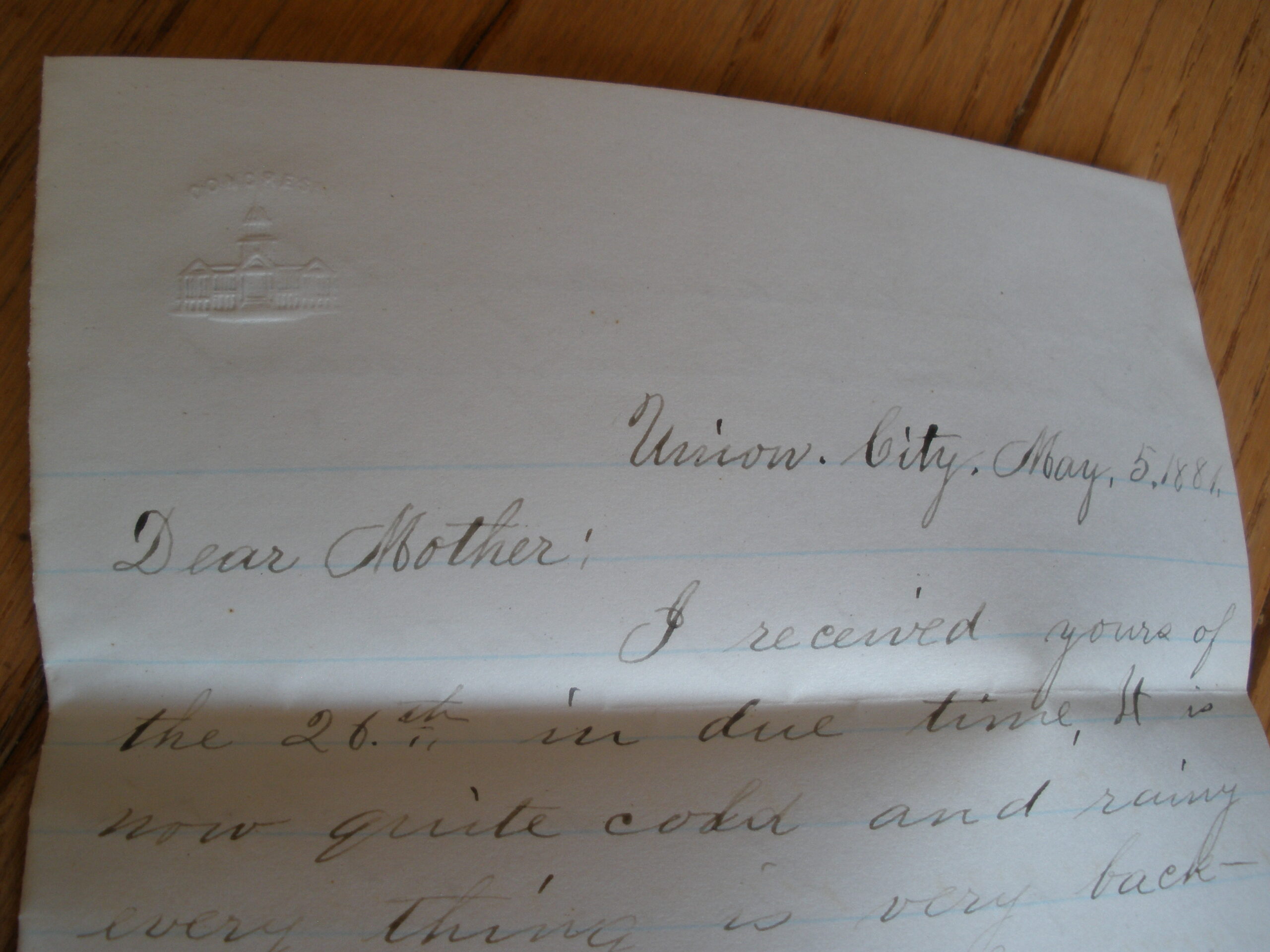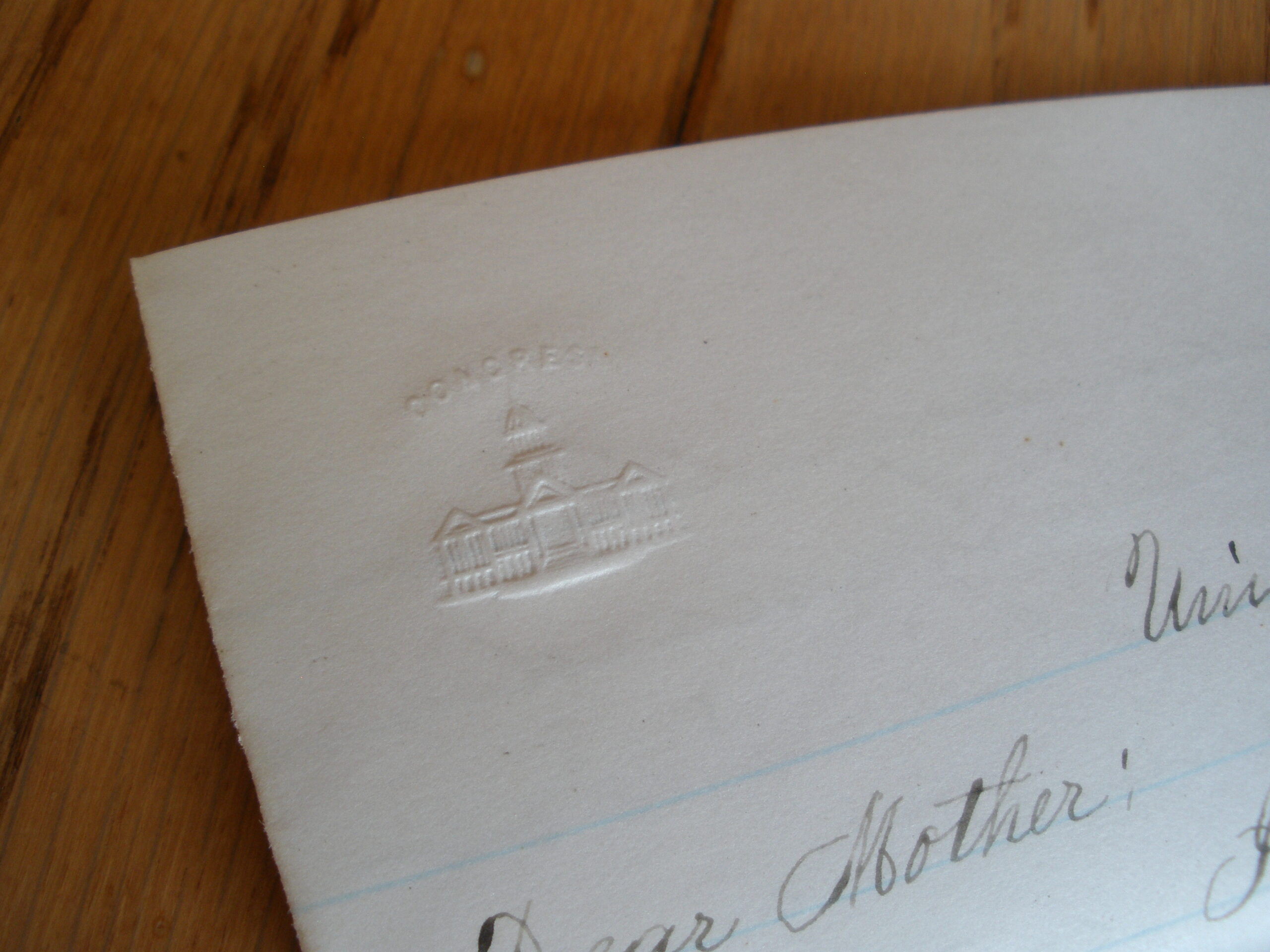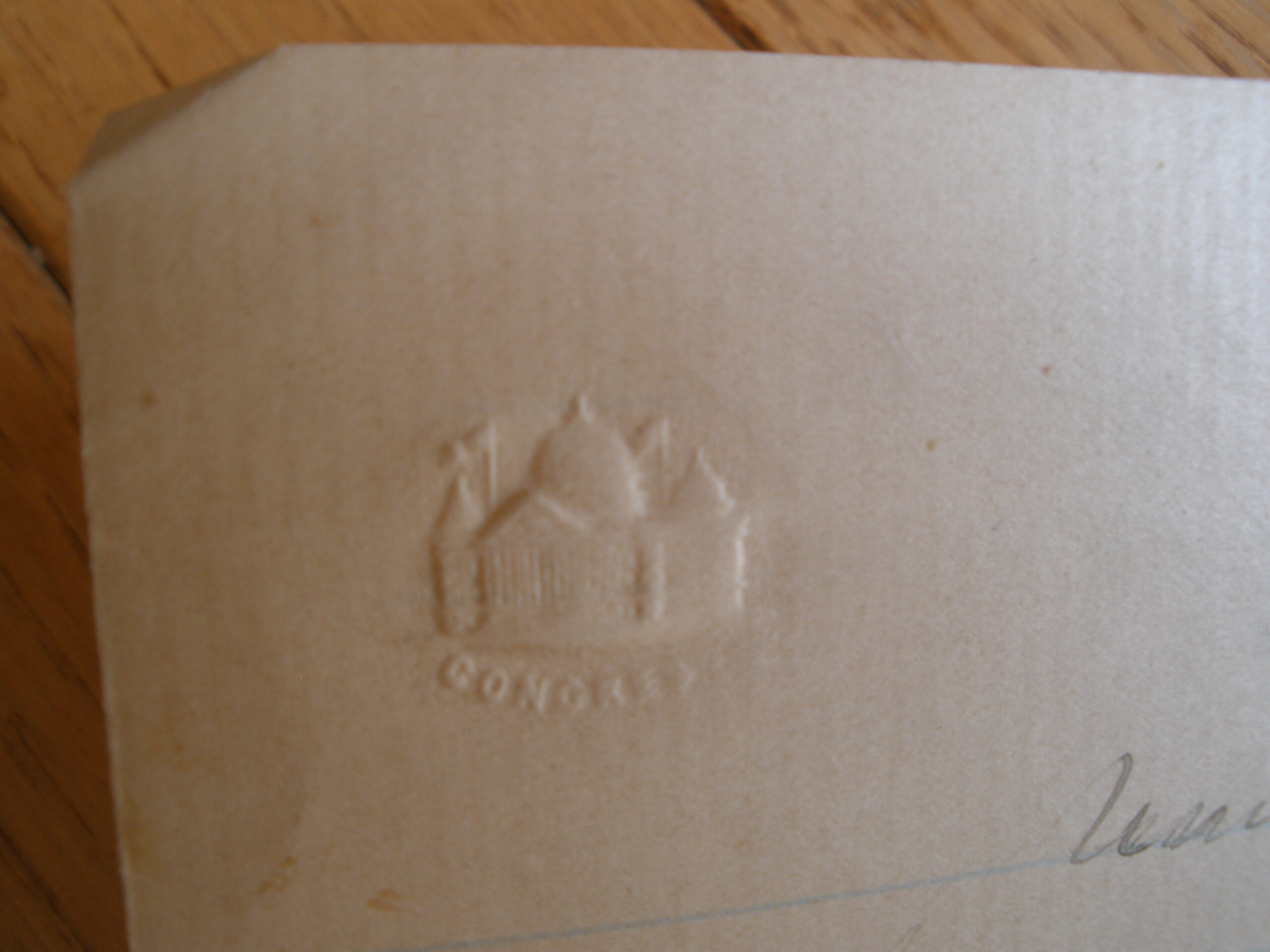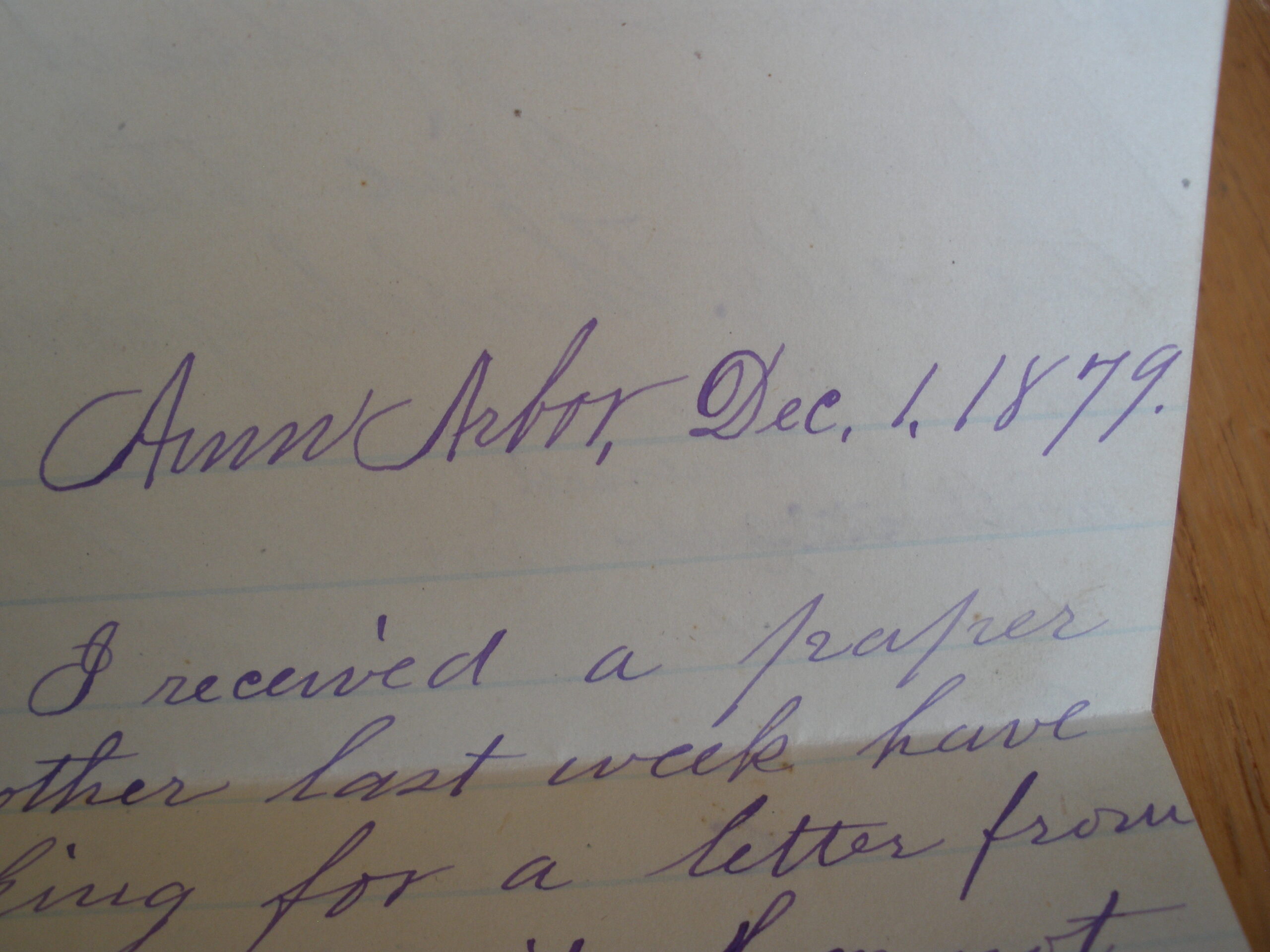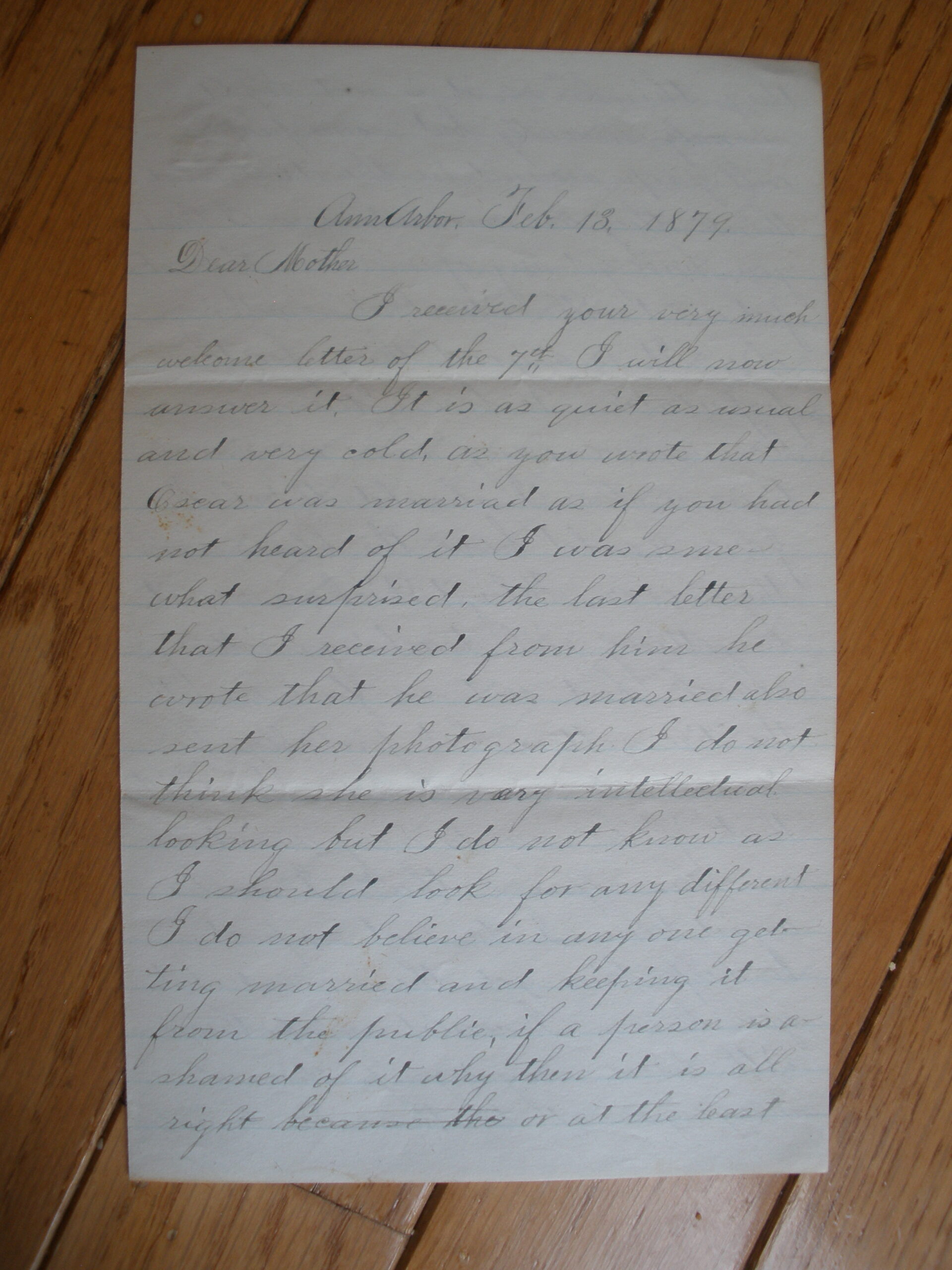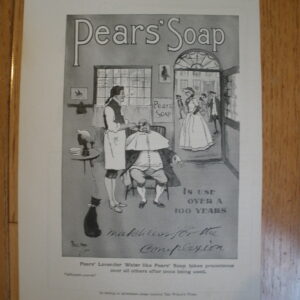For sale is a collection of NINE different 1880s HANDWRITTEN LETTERS from the Beebe family. Eight of the letters were written by Doctor R.P. Beedbe, Union City Michigan to his family members (his mother, father, and brother). The remaining handwritten letter was written by Doctor Beedbe’s sister, Mary Beedbe who wrote their mother. The nine different letters date between Feb 13. 1879 and Sept 19, 1886. Sept 13, 1883. Most of the letters are about four pages in length. One of the letters has a missing portion of a page so a portion of the letter is incomplete. The letters are in very good condition and are legible. This correspondence provide a fascinating insight in American life in the post civil war era. Content of the letters includes the following:
– Discussion of Union City competing with Battle creek to be the new site for a large manufacturing company from Pennsylvania which would employ about 100 men
– Discussion of authoring witnessing a surgery at medical school in which a professor removed a large tumor from a woman’s side eight or nine inches through in about five minutes
– Acknowledging his friends good fortune with his new railroad employment that only requires a ten-hour workday which is much better than working twelve or fifteen hours each day.
– Describing his purchase of a horse and buggy for $220 and the reaction of his medical colleagues reaction to his purchase. They wondered where the money came from. Which caused Dr. Bebbe to disparage his profession by noting: “It is not a very good thing to say of the medical profession that it has some of the meanest men in the ranks, and the most felons”.
– Reporting a small pox outbreak at Coldwater and the need for vaccinations
– Describing that Union City to celebrate the Fourth of July by a public reading of the declaration of independence. The Doctor thought this was a good idea to refresh the memories of those who have lost their patriotism.
– A political discussion about prohibition and the doctor’s predication that the fusionist party would win the state Governor’s office.
In the 1800s, fringe political parties would join forces and run candidates as the “Fusion Party”. For example, in 1854, anti-slavery parties were forming in many northern states in opposition to the Kansas Nebraska Act of 1854. While many of these state parties adopted the name “Republican”, the Ohio convention adopted the name “Fusionist” or “Fusion Party”, which they felt more accurately described the fusion of persons from a variety of political backgrounds, including members of the Free Soil Party, the Conscience Whig Party, and the Know-Nothing Party along with members of the Democratic Party who were opposed to slavery. Similarly, in Indiana, the Know-Nothings were not strong enough to run candidates on their own, and so combined with Republicans and other interest groups to run candidates on the Fusion or People’s Party tickets in opposition to the Anti-Nebraska movement.
some of the letters are written on “Congress” trademark stationary. In the early 1800s, Phillip King erected a paper mill on the grounds of the old courthouse in York where Congress once met. After Phillip’s death in 1829, the mill passed to his eldest son George who secured a contract to supply paper to the U.S. Congress. He then started embossing his stationary in the upper left corner with a “Congress” trademark. Congress stationary was widely popular with paper dealers in New York and elsewhere.
Take all nine letters for a total of $50. An museum worthy ephemera collectible for anyone interested in Union City, Michigan history or early medical practice.
Union City was settled in 1831 and incorporated in 1866. Union City got its name from the union of the St. Joseph and Coldwater Rivers.

